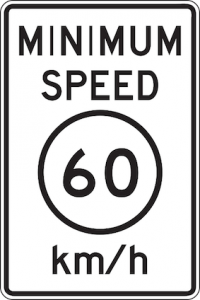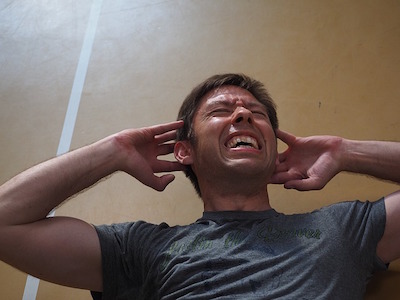 Given that the redesigned GRE test has somewhat of an unusual scoring scale, it can be hard to tell what the lowest possible score actually is. In this guide, we’ll go over the minimum GRE score, how many people get the lowest possible score and whether you need to worry about it. We’ll also discuss what’s the lowest GRE score that will still get you into graduate school.
Given that the redesigned GRE test has somewhat of an unusual scoring scale, it can be hard to tell what the lowest possible score actually is. In this guide, we’ll go over the minimum GRE score, how many people get the lowest possible score and whether you need to worry about it. We’ll also discuss what’s the lowest GRE score that will still get you into graduate school.
What’s the Lowest GRE Score Possible?
Contrary to what you might think, the lowest possible GRE score is not 0. The two multiple-choice GRE sections, Verbal Reasoning and Quantitative Reasoning, are each scored on a scale from 130-170 in one-point increments. The lowest possible score on each of those sections is 130.
Analytical Writing—the essay section—is slightly different as it is scored from 0-6 in half-point increments. The lowest score for Analytical Writing is a 0.
The minimum score in GRE terms, then, would be a 260 combined Verbal and Quantitative score with an Analytical Writing score of 0.
Who Gets the Minimum GRE Score?
Very few people receive the lowest possible GRE score. When we look at the GRE percentile chart, we can see that 131-132 are both 1st percentile scores for Verbal. This means that so few people receive a score of 130 on verbal that it is numerically negligible. In other words, the number is so close to zero that it might as well be zero. It also means that one percent or less of the entire test-taking population scores in the 130-132 range.
Similarly, on the Quantitative section, 133 and 134 are both 1st percentile scores. This, again, means so few people receive a score of 130-132 that it is numerically negligible, and one percent or less of the entire test-taking population scores in the 130-134 range.
On Analytical Writing, the 1st percentile score is 1.5 (out of 6), again suggesting that the number of students scoring in the 0-1 range is negligible and that one percent or less of test-takers receive a score from 0-1.5.
Quick side note: we've created the world's leading online GRE prep program that adapts to you and your strengths and weaknesses. Not sure what to study? Confused by how to improve your score? We give you minute by minute guide.
You don't NEED a prep program to get a great GRE score. But we believe PrepScholar is the best GRE prep program available right now, especially if you find it hard to organize your study schedule and don't know what to study.
Click here to learn how you can improve your GRE score by 7 points, guaranteed.

Am I in Danger of Getting the Lowest Possible GRE Score?
Not only is it simply unlikely from a numbers perspective that you’ll receive the minimum GRE score, it’s actually quite difficult to do even when guessing randomly.
It’s hard to say with certainty exactly which raw score corresponds to a particular scaled score in a particular test administration. This is because of the “equating” process, which accounts for slight difficulty variations of different test administrations. However, this conversion chart for the paper test suggests that getting a score of 130 means getting a raw score of 0—so, getting no questions correct. The paper test has 50 questions to the computerized version’s 40, but the principle holds—to get a 130, you have to get a raw score of 0.
Even if you skipped every question that was not straightforward multiple choice, and guessed on every question you did answer, you would still be likely to get at least several questions correct.
Lowest Possible GRE Verbal Score
On the Verbal section, there are about 20 typical five-choice multiple choice questions. Guessing on all of those, you have a 20% chance to get a correct answer. .2 x 20 = 4, which would give you a scaled Verbal score of about 134. Still a first-percentile score—but even skipping half the questions and blindly guessing on the rest you’d net several points higher than the minimum of 130.
Lowest Possible GRE Quant Score
On the Quantitative section, there are about 15 four-choice multiple choice questions and 18 five-choice questions. You have a 25% chance of guessing the correct answer on the 15 four-choice questions: .25 x 15 = 3.75, which we’ll round down to 3 since there are no partially correct answers on the GRE. You have a 20% chance of guessing the correct answer on the 18 five-choice questions. .2 x 18 = 3.6, which, again, we’ll round down to 3. That gives us a raw score of 6, which would work out to about a 136. Note that this is even skipping the seven (approximate) questions that are multiple-multiple choice and free-response!
So guessing on all the regular multiple-choice questions and skipping the rest, you’d still net an approximate Verbal-Quant composite score of 270—an entire ten points above the absolute minimum of 260.
Lowest Possible GRE Writing Score
It’s equally difficult to score to minimum mark for Analytical Writing. Because your Analytical Writing score is the average of your two essay scores, to get a 0, you would have to receive a score of 0 for both essays.
ETS describes a 0-scoring essay thusly: “A typical paper in this category is: off topic (i.e., provides no evidence of an attempt to respond to the assigned topic), is in a foreign language, merely copies the topic, consists of only keystroke characters, or is illegible or nonverbal.” To get a score of 0, you basically have to do nothing to respond to the prompt. If you make even the most minimal of attempts to write an on-topic response, even if it’s only one sentence long, you should get a score of 1.
Therefore, if you put a good-faith effort into the GRE, you shouldn’t worry that you’ll get back a score report with two 130s and a 0.

What’s the Lowest GRE Score for Admission?
As you can see, you don’t have a whole lot to worry about in terms of getting the lowest possible GRE score. You might be worried, though, about getting the minimum GRE score for admission to your graduate program of choice. This is a harder question to answer, as it depends both on the program you are applying to and the rest of your application.
Many programs say they have no “GRE cutoff”—i.e. they will look at your application no matter how you scored on the GRE. This may be true in literal terms in that they won’t see a low GRE and toss the whole thing into the garbage. In actuality, though, your GRE score does matter, even if it doesn’t always matter to the same extent for every program. A really low score can pretty thoroughly gut your chances even at programs where the score is less important than other factors.
I’ll go over some questions here to help you determine your minimum GRE score for the programs that interest you.
Does the Program Provide Any Score Statistics?
If the program provides statistics on the GRE scores of admitted students on their website, you can use that to set a “minimum” GRE score for yourself.
For example, say a school says in their FAQ that the average score for admitted students is the 80th percentile—so, about a 159 on Verbal and a 161 on Quant. I would say the absolute minimum you can get and expect to have a realistic chance of admission is 2-3 points below that. Even then, assuming your other credentials are stellar, it would probably still be a reach school for you.
And the bigger the jump in percentiles between points, the fewer points you can afford to fall below the mark. For example, while a 159 in Verbal is around the 80th percentile, a 155 is at the 68th percentile. That’s 12 percentiles lower just for a four point drop!
If you fall below the average for admitted students, even if you are only a couple points below, my advice is to study and take the test again until you do at least meet the average. It’s far better to exceed the minimum than just barely meet it.

What’s the Rest of My Application Like?
Is the rest of your application strong? If you had a 4.0 GPA in college, graduated summa cum laude, and have four years of relevant work experience, you don’t need to worry about your GRE score nearly as much as someone who had a 2.7 and only has two years of relevant experience. But consider if you need your GRE to compensate for something (like a low GPA). If that’s the case, you need to score high—higher than most other applicants to the program (think 2+ points higher than the average). However, if the rest of your application is very strong, you can afford to score around (or maybe just below at the absolute minimum) the average for program applicants.
What if your program doesn’t supply score statistics for admitted students? Where do you go from there? Ask yourself these questions.

What Kind of Program Am I Applying To?
Some programs care more about your GRE scores than others. For example, some MFA programs housed within larger universities require the GRE for admission to the overall graduate school, but admission to the program itself is based on samples of student work. In this case you want to get a high enough score that the overall school is willing to offer you admission, but you probably don’t need to be super stressed out by a 149 on Quant. You won’t be doing much math!
For programs where the GRE is truly unimportant for program admission but required by the overall graduate school, you’ll want to consult with the graduate school on the lowest scores they would consider for admission. You can also check places like Grad Cafe and Reddit for more guidance on that score (Pun not intended).
By contrast, for some programs, GRE scores are very important. This is particularly true of larger, more professionally-focused programs, as the GRE is one of the main ways that applicants are differentiated from each other.
Of course, there are no hard-and-fast rules. Some programs care more about your GPA than the GRE. Some care more about work or research experience. For more clarity on how much weight a particular program gives to the GRE, I advise calling their admissions office.
Want to improve your GRE score by 7 points? We have the industry's leading GRE prep program. Built by world-class instructors with 99th percentile GRE scores, the program learns your strengths and weaknesses through machine learning data science, then customizes your prep program to you so you get the most effective prep possible.
Try our 5-day full access trial for free:

Is One Section More Important Than the Other?
For some programs, only one section between Verbal and Quant really matters. For an Engineering program, you can often afford to get a pretty low score on Verbal just so long as your Quant score is high. The reverse is going to be true for many humanities graduate programs. So if you are going into a field that is heavily weighted towards either the humanities or the math/sciences, it’s fine to focus more on the relevant section and not worry so much about a low score in the other. You need to show your aptitude in the relevant area.
A high score on the other section certainly won’t hurt you—and indeed, it will help differentiate you from other applicants in a positive way—but you don’t need to be as worried that it will tank your chances of admission. For programs like this, you can usually afford to get 10 or even 12 points lower on the “weak” section than on the “strong” section.
How Competitive Is the Program?
Another critical piece to consider is the competitiveness of the program you are applying for. Many PhD programs say on their websites that they do not consider the GRE a hugely important part of the application. This may be true in absolute terms, but for super-competitive PhD programs (especially at prestigious universities), a low GRE score may be the only difference between you and other qualified applicants. In this case, even if the GRE score is only 3% of the overall application, someone who is just like you but has a stellar GRE score may well edge you out, and you don’t want that!
Be realistic about how competitive the program is, and make GRE score goals accordingly. The more competitive the program, the higher your GRE score needs to be.
For more on setting goal scores based on your program of choice, see my article on “What’s a Good GRE Score?”

Review: What You Need to Know About the Minimum GRE Score
The lowest possible score on the GRE Verbal and Quantitative sections is a 130 (with 170 the highest possible score). The lowest possible score on Analytical writing is 0 (with 6 the highest possible score).
It’s very unlikely that you would receive the lowest possible GRE score, because even with random guessing on all of the typical multiple-choice questions for Verbal and Quant, you would net about a 134 on Verbal and a 136 on Quant. On analytical writing, making even the barest attempt to respond to the prompts should give you a score of at least 1.
You may be more worried about the minimum score you can get and still get into graduate school.
Here’s how to determine your personal minimum GRE score:
- Look to see if the programs you are interested in provide the average GRE score of successful applicants. If yes, the minimum score you can afford to get and still have a reasonable chance of admission is 2-3 points below that average.
- If the rest of your application has a weakness (i.e. low college GPA), you need to score higher than the average to compensate.
What if your program doesn’t give average GRE score statistics? Consider the following:
- Is the GRE an important component for admissions? For some programs, the GRE is mostly a formality and you may be able to afford a pretty low score. Call the admissions office for more clarity on how they use your GRE scores.
- Is one section more important than the other? For humanities programs, your Verbal score is likely much more important than your Quant score. For science and engineering programs, the reverse is true. In these situations, you can afford to get 7-8 points lower on the “weak” section than the “strong” section.
- How competitive is the program? If it is very competitive, I hate to break it to you, but you need a high GRE score to get into a competitive program. Otherwise, you may be edged out by applicants with similar qualifications but higher GRE scores.
Of course, the goal of any standardized test like the GRE is to score as high as possible. In reality, circumstances like constrained time or financial resources may mean you need to know the lowest score you can afford. With the actionables in this guide, you should be able to figure it out!

What’s Next?
Wondering about the highest possible GRE score? We explain what it is and how many people get it. We also have advice for getting that perfect GRE score.
Trying to improve your GRE scores? Check out our complete guide to the GRE score range, plus more details on finding a good GRE score for you. We even have advice for good GRE scores for scholarships!
Ready to improve your GRE score by 7 points?
We've written a eBook about the top 5 strategies you must be using to have a shot at improving your GRE score.
Download it for free now:


Comments are closed.